CURRICULUM
This is a unique type of graduate training that will immerse students in interdisciplinary host-pathogen research, striving to integrate advances in pathogenesis with genomics, bioinformatics, and engineering.
All students apply to the Graduate Program in Biological Sciences (BISI) in the Graduate School at the University of Maryland, College Park. Entering BISI students interested in HPI training choose between two concentration areas (CA) based on their broader research interests: Molecular Cellular Biology (MOCB) or Computational Biology, Bioinformatics, Genomics (CBBG).
Each CA establishes a core curriculum common to all students in that CA to provide a foundation of knowledge in that particular area. Core requirements can be completed in the first year. Students interested in HPI training will take an HPI-focused sequence of elective courses in addition to their respective CA core curriculum.
HPI-Directed Sequence :
Modules are 7 weeks long and are team taught exclusively by HPI training faculty. Designed to provide students with a deeper understanding of the foundational discoveries and modern advances in the area of Host-Pathogen Interactions. Students must complete a minimum of three (3) modules in addition to CA core.
HPI-1:
Immunology and Host Defense (2 credits): Covers a comprehensive series of lectures on innate and adaptive immunology, including cellular and humoral immunity.
HPI-2:
Microbial Pathogenesis (2 credits each): Introduces students to the important molecular and cellular mechanisms of host-pathogen interactions focused primarily on bacterial pathogenesis, but also covers parasitic and viral pathogens to provide context.
HPI-3:
Bacterial Genetics (2 credits): Focuses on the fundamental concepts of bacterial and bacteriophage genetics. Special emphasis is placed on the requirements for gene expression in bacterial pathogens.
HPI-4:
Molecular Virology (2 credits): Focuses on animal RNA/DNA viruses and host responses to viral infections. Modern methods of purifying viruses, viral components, and determining virus structure are covered.
HPI-5 :
Translational science and entrepreneurship (2 credits): Introduces basic scientific discoveries and concepts, and tracks their development from the bench to translational medicine. Intellectual property issues and commercialization concepts and process are followed in detail.
Laboratory Rotations:
One of the single most important decisions for a pre-doctoral candidate is the choice of a mentor and the research area that will be the focus of their doctoral research. Entering BISI students interested in Host-Pathogen research undertake three (3) 6-week rotations before deciding on a laboratory to undertake their doctoral research. These rotations allow the students to interact with the mentors, students, and postdocs, as well as undertake a short research projects in order to make an informed decision.
Teaching:
Since a successful career in academic research will undoubtedly require that the researcher teach undergraduate, graduate, and/or medical students, they should have experience teaching as well as instruction on successful teaching techniques. Students are expected to teach one semester, preferably in their first semester, supported by a teaching assistantship (TA). Courses relevant to HPI include General Microbiology & Lab, Virology, Pathogenic Microbiology & Lab, Immunology & Lab, Microbial Pathogenesis, Bioinformatics, and Bacterial Genetics & Lab.
HPI Journal Club:
In collaboration with the Maryland Pathogen Research Institute (MPRI), the HPI faculty, postdocs, and students have a long-standing Host-Pathogen Interactions journal club every Friday morning at 9 am that is very well attended. Students do a 30-40 minute presentation of a high-impact paper from the current literature to the group with discussion and questions.
Bi-monthly Works-in-Progress (WiPS):
All HPI training faculty, students, and postdocs participate in a Works-in-Progress (WiPS) on the third Friday of every other month. The WiPS begins with a pizza reception where all HPI/MPRI researchers meet in a casual setting to talk about their science. The reception is followed by two (2) thirty minute presentations of ongoing research either by MPRI faculty members, postdocs, or graduate students. The inclusion of MPRI brings together a broad interdisciplinary group of researchers interested in HPI from Engineering, Chemistry, Physics, Computer Science, and Veterinary Medicine.
Seminars:
The Department of Cell Biology & Molecular Genetics (CBMG) has a weekly departmental seminar series that invites renowned researchers to the UM campus, including a strong collection of invited guests with a focus in Host-Pathogen Interactions.
Social Interactions:
Throughout the year, there are a number of Faculty/Student events such as a Student-faculty softball game and other “meet & greet” events. These relaxed atmosphere events introduce new students to the faculty and provides the student with their first interaction with their new mentors and peers. The graduate student society also sponsors monthly activities to encourage the development of a social network among graduate students.
CrossTalk Symposium/Retreat:
Once a year, HPI faculty sponsor a symposium in collaboration with the University of Maryland Baltimore School of Medicine Microbiology & Immunology faculty that takes place on the College Park or Baltimore campuses in alternating years. The goal of this symposium is to bring together outstanding HPI researchers from both campuses to share discoveries and forge collaborations. Students will have the opportunity to attend and present their results.
Advancement to Candidacy/Qualifying Exam:
Working with their research mentor, HPI students form their doctoral research committee by the end of their third (3rd) semester. The research committee also oversees the trainee’s qualifying examination for advancement to Ph.D. candidacy during the fourth semester. Students prepare a grant proposal (NIH format) based on their proposed dissertation research that addresses the specific aims, background & significance, experimental design, and potential pitfalls. To qualify for PhD candidacy, students must successfully defend their proposal in an oral exam.


